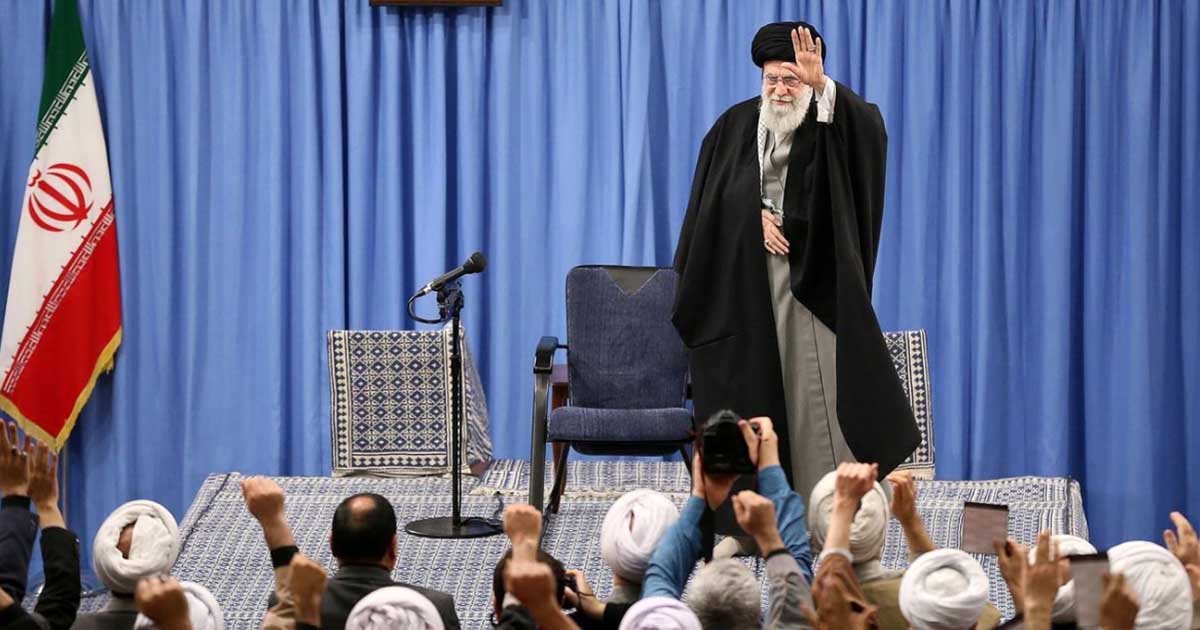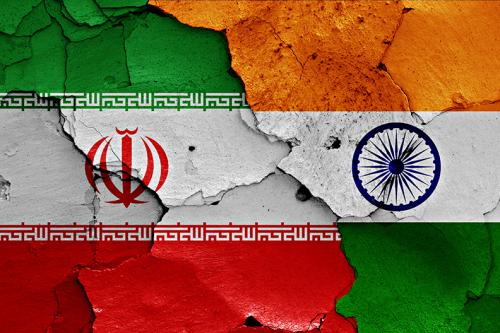AFP |
German Foreign Minister Heiko Maas said Monday it was in the “political and strategic interest” for Iran to stay in the 2015 nuclear deal, as the UN atomic watchdog voiced concern at increased tensions over the landmark accord.
Maas, on a visit to Tehran, also insisted that the deal – which has been hanging in the balance since the United States unilaterally withdrew from it last year – was “extraordinarily important” for Europe.
Long and intensive talks: in #Teheran AM @HeikoMaas discussed the future of the #JCPoA and the tense situation in the region with @JZarif. "Germany's position, also at E3, is clear: we stand by the JCPoA", says Maas. pic.twitter.com/YqGWjvbKKj
— GermanForeignOffice (@GermanyDiplo) June 10, 2019
Iran signed the landmark accord with China, Russia, Germany, Britain, France and the United States, leading to sanctions relief in exchange for Tehran curbing its nuclear program.
But the US administration of President Donald Trump has imposed sweeping sanctions on Iran after walking away from the deal formally known as the Joint Comprehensive Plan of Action (JCPOA).
Read more: China & Russia must take “Concrete Actions” to save JCPOA: Iranian foreign minister
Iran retaliates
On May 8, Iran retaliated by saying it no longer considered itself bound to keep to the limits of stocks of heavy water and enriched uranium that were agreed as part of the deal.
Iran has also blamed the Europeans for not living up to their commitments.
EU statement today is why JCPOA is where it is: the US has bullied Europe—and rest of world—for a year and EU can only express “regret”.
Instead of demanding that Iran unilaterally abide by a multilateral accord, EU should uphold obligations – incl normalization of economic ties.— Javad Zarif (@JZarif) May 9, 2019
And it warned that it would stop by early July abiding by restrictions on the level to which it can enrich uranium and on modifications to its Arak heavy water reactor, unless other parties to the JCPOA speed up work on mitigating the effects of US sanctions.
Maas met Iranian Foreign Minister Mohammad Javad Zarif Monday in Tehran to discuss the future of the nuclear deal. “We had a serious, frank and rather long discussion,” Zarif told reporters at a joint news conference after talks with Maas.
“Together with Germany and the European Union, we have a common goal: to maintain (the nuclear agreement), put an end to tensions and conflicts in the region and (allow) the Iranian people to economically benefit (from this agreement),” he said.
Ahead of meeting Zarif, the German foreign minister acknowledged that the economic benefits Tehran hoped for from the deal were now “more difficult to obtain” but urged Iran to fully respect the agreement.
It is essential that Iran fully implements its nuclear-related commitments under the JCPOA
It is in Iran’s “political and strategic interest to maintain this agreement and the dialogue with Europe”, he said.
‘Extraordinarily important’
The nuclear deal, he said, is “extraordinarily important” for Europe’s security. “We do not want Iran to have nuclear weapons,” Maas said.
Deutschland und die USA sind einig, dass #Iran keine Atomwaffen besitzen darf. Gegenüber meinem US-Kollegen @SecPompeo habe ich heute dargelegt, warum aus europäischer Sicht das Nuklearabkommen dafür der beste Weg ist. pic.twitter.com/ecK7m45zbH
— Heiko Maas 🇪🇺 (@HeikoMaas) May 31, 2019
According to Maas, Germany and its European partners “have made the greatest effort to meet (their) commitments”. But Iran thinks otherwise.
“What the Europeans must do, and have done has so far, has not satisfied our interests”, Iran foreign ministry spokesman Abbas Mousavi told a news conference on Monday.
“What we expected from the European Union was that they act on their commitments, but they did not want to or could not,” he added.
Substantive consultations in Russia. Convergence of views including:
JCPOA is in critical condition bec of US – and Europe's failure to uphold its obligations. EU/E3 must step up for JCPOA to survive.
Iran's choice is constructive engagement with credible *and* relevant actors pic.twitter.com/sNDlIeNBcu
— Javad Zarif (@JZarif) May 8, 2019
The US sanctions reimposed last year targeted crucial parts of Iran’s economy, namely the oil and banking sector.
The oil embargo has hurt Iran’s main supply of foreign revenues, while the banking sanctions scared away foreign investments and made money transfers near impossible for Iranian businesses through official channels.
Read more: Iran losing its patience due to staggering economy
Europe tried to respond to the US withdrawal by setting up a special trade mechanism called INSTEX that would allow legitimate trade with Iran to continue without falling foul of US sanctions. Although launched in January, INSTEX is still not operational and has been criticised by Iranian leaders.
IAEA concerned
Iran has given Europe, China and Russia until July “to make their commitments operational”. Otherwise Tehran said it will stop complying with the nuclear deal’s uranium enrichment restrictions and resume building a heavy-water reactor at Arak that was shut down as part of the deal.
This has sparked concern at the UN’s nuclear watchdog which on Monday urged dialogue. “I… hope that ways can be found to reduce current tensions through dialogue,” International Atomic Energy Agency director general Yukiya Amano told the agency’s quarterly board of governors meeting.
⚡ MEDIA: Tomorrow, the IAEA Board of Governors will meet in Vienna. Topics expected to include #NorthKorea, #Iran, technical cooperation, the IAEA's annual report & more. https://t.co/zXVOFGKBVn pic.twitter.com/mvHXb4Qy1M
— IAEA – International Atomic Energy Agency ⚛️ (@iaeaorg) June 9, 2019
“As I have constantly emphasised, the nuclear-related commitments entered into by Iran under the JCPOA represent a significant gain for nuclear verification,” Amano said. “It is essential that Iran fully implements its nuclear-related commitments under the JCPOA,” he added.
Two weeks ago, the latest inspections report by the IAEA said that while stocks of uranium and heavy water had increased, they were still within the limits set by the JCPOA.
AFP with additional input by GVS news desk














